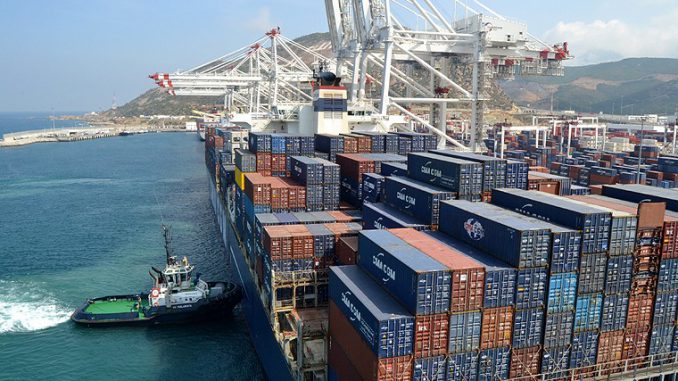
The trade deficit is widening. It reached 16.3 billion Dirhams at the end of January.
Still no relief in the trade balance. In today’s edition, L’Economiste reports a 1.7% increase in the deficit with a coverage rate of 59.8%. Thus, the newspaper notes a slight increase in imports to MAD 40.7 billion, against MAD 24.3 billion for exports.
In detail, foreign purchases were characterized by a strong increase in energy bill: +14.7% due to the increase in the volume of diesel and fuel oil purchases, as well as the price effect. Purchases of food products and finished products also rose (+12.3% and +4.3%).
The supply of capital goods also increased by 3.2% to reach a rate of 25.3%. L’Economiste notes a 56.7% drop in imports of semi-finished and raw products, wire, bars and profiles of iron or non-alloy steel.
On the level of exports, the paper notes that the 1.2% increase is due to the growth of exports from agriculture and food processing (+2%), textiles and leather (+3.6%), aeronautics (+2.7%) and pharmaceuticals (+35.6%). The surprise comes from the automotive sector, where shipments have virtually remained unchanged. “The share of cabling in these exports stood at 42.3% at the end of January, up 0.9 points compared with the same period last year. Automotive manufacturing is at 40.8%, down 5.1 points compared to the previous year”.
The situation is even worse for sales of phosphates and derivatives (-10.7%), mining (43.3%) and electronics (-4.3%).
Revenue from Moroccans living abroad and foreign direct investment are also down. “While the first fell by 2.7%, foreign direct investment flows fell by 32.2%. January was also marked by a travel balance surplus of +10.2%”.




Be the first to comment